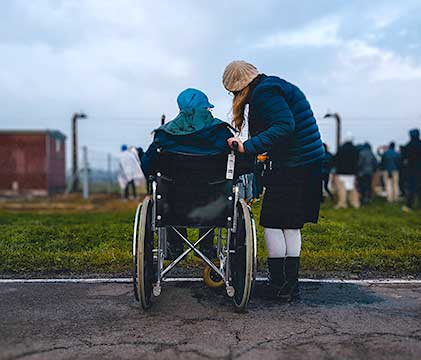Compassionate Care: Empowering Cancer Patients with Palliative Support
Compassionate Care: Empowering Cancer Patients with Palliative Support
Receiving a cancer diagnosis is an overwhelming and life-altering experience for patients and their loved ones. Along with the physical challenges of the disease itself, cancer patients often face emotional distress, uncertainty, and a range of side effects caused by treatments. During such trying times, the importance of compassionate care and palliative support cannot be overstated. Palliative care is a specialized approach that focuses on improving the quality of life for patients with serious illnesses, and it plays a crucial role in empowering cancer patients to navigate their journey with dignity and comfort.
Understanding Palliative Care
Palliative care is a multidisciplinary approach to healthcare that aims to enhance the quality of life for patients living with serious illnesses, such as cancer. It focuses on addressing not just the physical symptoms but also the psychological, emotional, and social needs of patients. Contrary to the common misconception, palliative care is not limited to end-of-life care. Instead, it can be provided alongside curative treatments from the point of diagnosis, throughout the treatment process, and beyond, regardless of whether the patient’s condition is curable or not.
The core principles of palliative care revolve around pain management, symptom relief, and improving the overall well-being of patients. The primary objective is to help individuals achieve the highest possible quality of life, ensuring they can continue to engage in activities that are meaningful to them and maintain their dignity and independence.
The Role of Compassionate Care
Compassion lies at the heart of palliative care. When patients are facing the physical and emotional challenges brought on by cancer, the kindness and empathy shown by healthcare providers can make an immense difference. Compassionate care involves taking the time to listen to patients, understand their fears and concerns, and provide support that addresses their unique needs. This approach not only helps in alleviating physical symptoms but also aids in reducing anxiety, depression, and feelings of isolation that cancer patients often experience.
Empowering Cancer Patients
Empowerment is a key aspect of compassionate palliative care. Cancer can make individuals feel vulnerable and helpless, but through a patient-centered approach, they can regain some control over their lives. By involving patients in decision-making processes and respecting their values and preferences, healthcare professionals help cancer patients feel more empowered to cope with their illness. This can lead to a sense of self-determination, which is crucial in maintaining a positive outlook and adhering to treatment plans.
Additionally, palliative care teams work collaboratively to provide a comprehensive support system for patients. This involves not only medical professionals but also social workers, psychologists, chaplains, and other specialists who contribute to addressing the diverse needs of cancer patients. Social and emotional support, counseling, and spiritual care play a significant role in helping patients navigate the emotional rollercoaster that often accompanies cancer treatment.
Addressing the Family and Caregivers
Compassionate palliative care also extends to the family members and caregivers of cancer patients. A cancer diagnosis affects not only the individual with the illness but also their loved ones. Palliative care teams provide assistance and support to families, ensuring they have the resources and guidance to navigate the challenges of caregiving. By addressing the needs of caregivers, healthcare professionals contribute to the overall well-being of the patient as well.
Breaking the Stigma
Unfortunately, the term “palliative care” is sometimes misunderstood, leading to misconceptions about its purpose. It is not about giving up on treatment or hastening death but rather about providing comprehensive support to patients and their families. By breaking the stigma associated with palliative care, more individuals can benefit from its services from the earliest stages of their cancer journey.
In conclusion, compassionate care through palliative support is a powerful tool in empowering cancer patients and enhancing their quality of life. It is a holistic approach that considers not only physical symptoms but also emotional, social, and spiritual well-being. By addressing the diverse needs of patients and their families, palliative care helps individuals navigate their cancer journey with dignity, comfort, and a renewed sense of empowerment. As the medical community continues to recognize the value of compassionate palliative care, more cancer patients will be able to find comfort and solace in their battle against this formidable disease.




